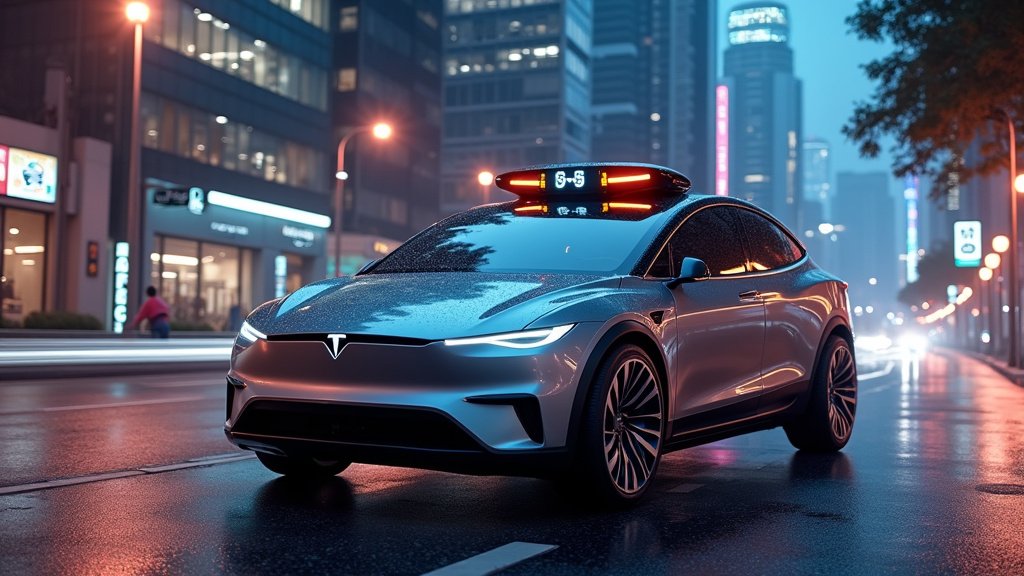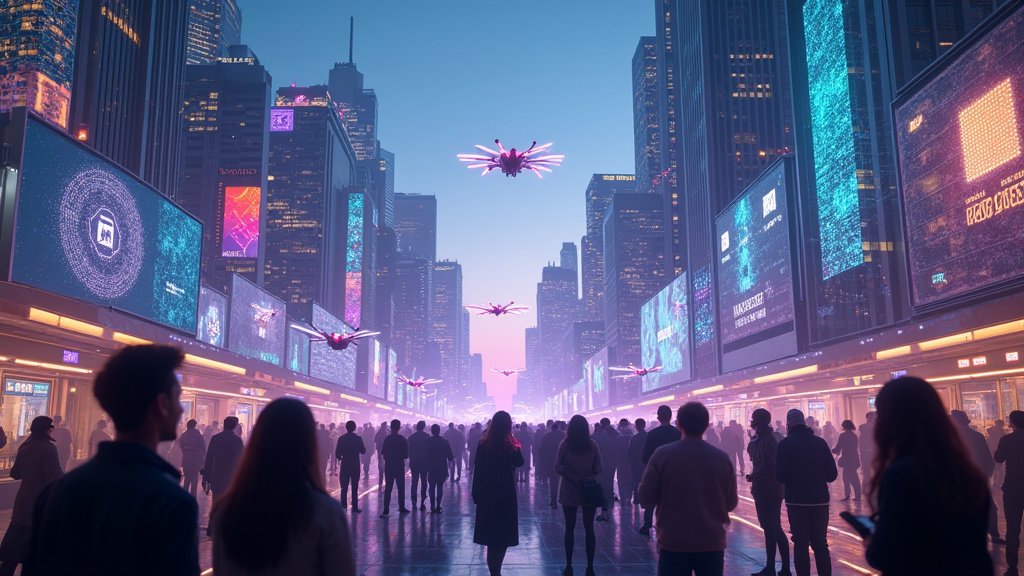Tesla is set to unveil its highly anticipated Tesla Cybercab robotaxi at the upcoming China International Import Expo (CIIE) in Shanghai, marking a significant entry for the autonomous vehicle into the Asia-Pacific market. The expo, scheduled from November 5 to 10, 2025, will serve as the stage for this crucial demonstration, according to Tesla’s Vice President Tao Lin. This move signals Tesla’s strategic intent to bolster its presence in China, a market where its sales have experienced a notable slowdown this year. The Tesla Cybercab is poised to make a significant impact.
Tesla Cybercab’s Asian Unveiling
The Tesla Cybercab, first revealed by Elon Musk in October 2024, has been undergoing limited trials in Austin, Texas, with human safety monitors onboard since June 2025. Its mass production is slated to commence in 2026, with some reports indicating a target of Q2 2026 for assembly to begin. The unveiling in Shanghai will showcase the Tesla Cybercab‘s advanced technology to a broad audience, potentially reigniting consumer interest in Tesla’s offerings within the region. While the Tesla Cybercab‘s presence at the expo is confirmed, official plans for its deployment on Chinese roads remain undisclosed.
Strategic Push into a Competitive Market for the Tesla Cybercab
Tesla’s decision to debut the Tesla Cybercab in Shanghai comes at a time when China’s autonomous vehicle sector is rapidly maturing and attracting significant investment. Chinese tech giants such as Baidu and Pony AI have been actively testing and operating robotaxi services across various cities for years. Baidu, in particular, has already secured the first permits in China for commercial, fully driverless robotaxi operations, allowing it to collect fares in Chongqing and Wuhan without human drivers. This indicates a supportive regulatory environment that China is actively cultivating for autonomous driving technology, aiming for global leadership by 2035, a key aspect of China autonomous vehicles development.
However, Tesla’s own sales performance in China has seen a downturn, with Tesla China sales dropping by 5.97% year-on-year from January to September 2025. The Tesla Cybercab debut at the CIIE, a major international trade fair featuring automobiles and smart mobility as a key section, could serve as a vital platform to recapture market attention and highlight Tesla’s cutting-edge technology. The event will likely draw comparisons between Tesla’s autonomous driving capabilities and those of its local and international competitors in the AV market expansion.
Technological Advancement and Regulatory Considerations for the Tesla Cybercab
The Tesla Cybercab represents Tesla’s vision for the future of urban mobility, designed with an emphasis on full autonomy, potentially without traditional controls like steering wheels or pedals, though some considerations for adding them for regulatory compliance have been mentioned. The vehicle’s technology relies heavily on Tesla’s vision-based systems and advanced AI, a departure from competitors who often integrate lidar sensors. Tesla CEO Elon Musk has consistently emphasized that fully self-driving vehicles will ultimately be safer than human-operated ones, a core tenet of the Elon Musk robotaxi vision.
China has been progressively developing a regulatory framework for autonomous vehicles. Recent guidelines, such as those issued in late 2023, mandate human supervisors or security inspectors for certain levels of automation in public transport, though regulations are evolving to accommodate fully driverless operations in specific pilot zones. Tesla’s participation in Shanghai’s expo and potential future rollouts of the Tesla Cybercab will be closely watched to see how its technology navigates China’s unique regulatory landscape and competitive pressure within the robotaxi technology sector.
Broader Implications for the Industry
The upcoming showcase in Shanghai is more than just a product debut; it’s a strategic maneuver in the global race for autonomous driving supremacy. Tesla’s ability to integrate large-scale vehicle production with advanced self-driving technology is seen by some as a unique advantage, positioning it to potentially design and manufacture highly scalable and cost-effective robotaxis. This news is trending globally as the automotive industry observes Tesla’s next steps in expanding its advanced technology offerings. The development of the Tesla Cybercab is a significant piece of news for the future of transportation technology, especially as competitors like Waymo and Baidu’s Apollo Go continue to expand their services. The successful integration and adoption of the Tesla Cybercab in China could significantly impact Tesla’s future revenue streams and solidify its position in the burgeoning robotaxi market, a critical element in the future of mobility technology.





